
Live from Lisbon's Jazz em Agosto Festival, cornetist Rob Mazurek merges his Chicago and Sao Paulo Underground bands, adding bassist Matthew Lux and jazz legend tenor saxophonist Pharoah Sanders, for a potent blend of modern jazz, electronics, and free improvised music.
Out of Stock
Quantity in Basket: None
Log In to use our Wish List
Shipping Weight: 3.00 units
Sample The Album:
Pharoah Sanders-tenor saxophone, voice
Rob Mazurek-cornet, electronics, flute, voice
Guilherme Granado-synths, samples, percussion, voice
Mauricio Takara-cavaquinho, percussion, electronics
Matthew Lux-electric bass
Click an artist name above to see in-stock items for that artist.
UPC: 5609063003017
Label: Clean Feed
Catalog ID: CF301
Squidco Product Code: 19303
Format: CD
Condition: New
Released: 2014
Country: Portugal
Packaging: Cardstock Gatefold Sleeve
Recorded at the Jazz em agosto Festival, Calouste Gulbenkian Foundation, in Lisbon, Portugal, on August 11th, 2013, by Luis Delgado.
"Cornet player, composer and conceptualist Rob Mazurek is a man of many projects. One of them is of simple design but has many wondering implications: it consists in inviting a historical figure of the free jazz field to develop some work with combined approaches, his own and - because it's a tribute - the guest's.
After doing so with Bill Dixon, short before his death, he came to Lisbon with no less than Pharoah Sanders, John Coltrane's companion and one of the leading spirits of the pan-African mysticism. For that purpose, Mazurek crossed two of his main bands, Chicago Undeground (including Chad Taylor) and São Paulo Underground (the Brazilian improvisers Mauricio Takara and Guilherme Granado), adding the bassist Matthew Lux to the mix.
The encounter happened as the final act of the 2013 edition of the most important jazz festival in Portugal, Jazz em Agosto, and this is the live recording of that unique event. It's one more item in the Clean Feed series established in association with the festival organized by the Calouste Gulbenkian Foundation and a special one. The music is an electrifying melting pot between jazz and free improvised music, with a tropical feeling and lots of electronics, something you never heard Pharoah do, but his tenor sax is all around, as it is his way of feeling and thinking. What a treat for our ears!"-Clean Feed
Also available on Vinyl LP.Artist Biographies
• Show Bio for Pharoah Sanders "Pharoah Sanders (born October 13, 1940) is an American jazz saxophonist. Saxophonist Ornette Coleman once described him as "probably the best tenor player in the world." Emerging from John Coltrane's groups of the mid-1960s, Sanders is known for his overblowing, harmonic, and multiphonic techniques on the saxophone, as well as his use of "sheets of sound". Sanders is an important figure in the development of free jazz; Albert Ayler famously said: "Trane was the Father, Pharoah was the Son, I am the Holy Ghost". Pharoah Sanders was born Farrell Sanders on October 13, 1940 in Little Rock, Arkansas. His mother worked as a cook in a school cafeteria, and his father worked for the City of Little Rock. An only child, Sanders began his musical career accompanying church hymns on clarinet. His initial artistic accomplishments were in art, but when he was at Scipio Jones High School in North Little Rock, Sanders began playing the tenor saxophone. The band director, Jimmy Cannon, was also a saxophone player and introduced Sanders to jazz. When Cannon left, Sanders, although still a student, took over as the band director until a permanent director could be found. During the late 1950s, Sanders would often sneak into African-American clubs in downtown Little Rock to play with acts that were passing through. At the time, Little Rock was part of the touring route through Memphis, Tennessee, and Hot Springs for R&B and jazz musicians, including Junior Parker. Sanders found himself limited by the state’s segregation and the R&B and jazz standards that dominated the Little Rock music scene. After finishing high school in 1959, Sanders moved to Oakland, California, and lived with relatives. He briefly attended Oakland Junior College and studied art and music. Once outside the Jim Crow South, Sanders could play in both black and white clubs. His Arkansas connection stuck with him in the Bay Area with the nickname of “Little Rock.” It was also during this time that he met and befriended John Coltrane. Pharoah Sanders began his professional career playing tenor saxophone in Oakland, California. He moved to New York City in 1961 after playing with rhythm and blues bands. He received his nickname "Pharoah" from bandleader Sun Ra, with whom he was performing. After moving to New York, Sanders had been destitute: "He was often living on the streets, under stairs, where ever he could find to stay, his clothes in tatters." Sun Ra gave him a place to stay, bought him a new pair of green pants with yellow stripes (which Sanders hated but had to have), encouraged him to use the name 'Pharoah', and gradually worked him into the band." Sanders came to greater prominence playing with John Coltrane's band, starting in 1965, as Coltrane began adopting the avant-garde jazz of Albert Ayler, Sun Ra and Cecil Taylor. Sanders first performed with Coltrane on Ascension (recorded in June 1965), then on their dual-tenor recording Meditations (recorded in November 1965). After this Sanders joined Coltrane's final quintet, usually performing very lengthy, dissonant solos. Coltrane's later style was strongly influenced by Sanders. Although Sanders' voice developed differently from Coltrane, Sanders was strongly influenced by their collaboration. Spiritual elements such as the chanting in Om would later show up in many of Sanders' own works. Sanders would also go on to produce much free jazz, modified from Coltrane's solo-centric conception. In 1968 he participated in Michael Mantler and Carla Bley's Jazz Composer's Orchestra Association album The Jazz Composer's Orchestra, featuring Cecil Taylor, Don Cherry, Larry Coryell and Gato Barbieri. Pharoah's first album, Pharoah's First, wasn't what he expected. The musicians playing with him where much more straightforward than Sanders, which made the solos played by the other musicians a bit out of place. Starting in 1966 Sanders signed with Impulse! and recorded Tauhid that same year. His years with Impulse! caught the attention of jazz fans, critics, and musicians alike, including John Coltrane, Ornette Coleman, and Albert Ayler. In the 1970s, Sanders continued to produce his own recordings and also continued to work with the likes of Alice Coltrane on her Journey In Satchidananda album. Most of Sanders' best-selling work was made in the late 1960s and early 1970s for Impulse Records, including the 30-minute wave-on-wave of free jazz "The Creator has a Master Plan" from the album Karma. This composition featured vocalist Leon Thomas's unique, "umbo weti" yodeling, and Sanders' key musical partner, pianist Lonnie Liston Smith, who worked with Sanders from 1969-1971. Other members of his groups in this period include bassist Cecil McBee, on albums such as Jewels of Thought, Izipho Zam, Deaf Dumb Blind and Thembi. Although supported by African-American radio, Sanders' brand of free jazz became less popular. From the experiments with African rhythms on the 1971 album Black Unity (with bassist Stanley Clarke) onwards he began to diversify his sound. In the late 1970s and 1980s, Sanders explored different musical modes including R&B (Love Will Find a Way), modal jazz, and hard bop. Sanders left Impulse! in 1973 and redirected his compositions back to earlier jazz conventions. He continued to explore the music of different cultures and refine his compositions. However, he found himself floating from label to label. He found a permanent home with a small label called Theresa in 1987, which was sold to Evidence in 1991. However Sanders would continue to be frustrated with record labels for most of the 1990s. Also during this time, he went to Africa for a cultural exchange program for the U.S. State Department. Sanders’s major-label return would finally come in 1995 when Verve Records released Message from Home, followed by Save Our Children (1998). But again, Sanders’s disgust with the recording business prompted him to leave the label. In 1992, Sanders appears on a reissue (Ed Kelly and Pharoah Sanders) for the Evidence label of a recording that he completed for Theresa Records in 1979 entitled Ed Kelly and Friend. The 1992 version contains extra tracks which feature Pharoah's pupil Robert Stewart (saxophonist). This was Stewart's first recording for a jazz label. In 1994 he traveled to Morocco to record the Bill Laswell-produced album The Trance Of Seven Colors with Gnawa musician Mahmoud Guinia. The same year, Sanders appeared on the Red Hot Organization's album, Stolen Moments: Red Hot + Cool, on the track "This is Madness" with Umar Bin Hassan and Abiodun Oyewole and the bonus track, "The Creator Has A Master Plan (Trip hop Remix)." The album was named "Album of the Year" by Time. Sanders worked with Laswell, Jah Wobble, and others on the albums Message From Home (1996) and Save Our Children (1999). In 1999, he complained in an interview that despite his pedigree, he had trouble finding work. In 1997 he was featured on several Tisziji Munoz albums also including Rashied Ali. In the 2000s, a resurgence of interest in jazz kept Sanders playing festivals including the 2007 Melbourne Jazz Festival and the 2008 Big Chill Festival, concerts, and releasing albums. He has a strong following in Japan, and in 2003 recorded with the band Sleep Walker. In 2000, Sanders released Spirits and, in 2003, a live album titled The Creator Has a Master Plan. He was awarded an NEA Jazz Masters Fellowship for 2016 and was honored at a tribute concert in Washington DC on April 4, 2016." ^ Hide Bio for Pharoah Sanders • Show Bio for Rob Mazurek "Rob Mazurek is an American electro-acoustic composer, cornetist, improviser and visual artist living in Chicago, Illinois. As a composer, Rob Mazurek has written over 300 original compositions over the past 30 years, and has released 55 recordings on various labels. He currently leads a number of ensembles, including Exploding Star Orchestra, Pharoah and the Underground (featuring Pharoah Sanders), Chicago Underground, Pulsar Quartet, São Paulo Underground, Skull Sessions, Sound Is Quintet, Starlicker, Mandarin Movie and Throne of the House of Good and Evil, each of which possesses its own distinct musical personality. He has collaborated with a wide variety of artists, such as Bill Dixon, Pharoah Sanders, Mike Ladd, Roscoe Mitchell, Yusef Lateef, Fred Anderson, Naná Vasconcelos, Mamelo Sound System, Kassin and Marcelo Camelo and others. Additionally, Rob Mazurek works as a visual artist (incorporating sound, painting and video) with numerous international performances, exhibitions and artist residencies." ^ Hide Bio for Rob Mazurek • Show Bio for Guilherme Granado "Guilherme Granado, a Sao Paulo native, has played and recorded with Takara in Hurtm old (4 albums and a split disc with The Eternals on Submarine Records) as well as working with the Assembleia Ritmica de Pinheiros . Additionally, Granado performs, produces, and records under the name Bodes & Elefantes, which has released 3 albums on Subma rine Records & Catune. He has toured with Prefuse 73 and Marcelo Camelo, and collaborated with a global array of artists including Pharoah Sanders, Naná Vasconcelos, Bill Dixon, Roscoe Mitchell, High Priest (Antipop Consortium), Mamelo Sound System, Explod ing Star Orchestra, Paulo Santos (Uakti), Mike Ladd, and many others. Granado has appeared on recordings released by Universal, YB Music, Submarine. Granado is in the vanguard of Brazil's Electronic Spiritualism Sound Makers, devoted to promoting music, b eats and ideas in Brazil." ^ Hide Bio for Guilherme Granado • Show Bio for Mauricio Takara "Sao Paulo native Mauricio Takara, born in 1982, started playing the acoustic guitar at the age of seven. Two years later, he started playing drums. Takara played with local hard core punk bands throughout the '90s and started Hurtmold in 1998, releasing five records on the Submarine label. He put out his first solo album on Desmonta Discos in 2003 and has since released three more solo recordings on the same label, the latest bein g 2010's Sobre Todas e Qualquer Coisa . Takara has recorded with many Brazilian artists, including Nacao Zumbi, Vanessa Da Mata, Sabotage, Naná Vasconcelos and Marcelo Camelo, as well as such renowned international artists as Pharoah Sanders, Archie Shepp, Yusef Lateef, and Prefuse 73 . Besides Rob Mazurek's São Paulo Underground, Takara has also worked with such other Chicago - connected projects and artists as Exploding Star Orchestra, Jason Adasiewicz, and John Herndon . Takara has toured Europe (Sonar festi val/Barcelona, Roskilde/Denmark, Womex/Seville & Club Transmediale/Berlin), the U.S., India (World Socials Forum) and Brazil (Nublu Jazz Festival, SESC Pinheiros, and opening for Lo Borges & Milton Nascimento at Coquetel Molotov Festival). Takara is consid ered one of the leading voices in the new post - Tropicalia wave of Brazilian music." ^ Hide Bio for Mauricio Takara
7/7/2025
Have a better biography or biography source? Please Contact Us so that we can update this biography.
7/7/2025
Have a better biography or biography source? Please Contact Us so that we can update this biography.
Have a better biography or biography source? Please Contact Us so that we can update this biography.
Have a better biography or biography source? Please Contact Us so that we can update this biography.
Track Listing:
1. Gna Toom 14:47
2. Spiral Mercury 8:59
3. Blue Sparks From Her 12:18
4. Asasumamehn 5:32
5. Pigeon 12:58
6. Jagoda's Dream 9:36
7. The Ghost Zoo 11:52
Improvised Music
Jazz
Free Improvisation
European Improvisation, Composition and Experimental Forms
Clean Feed
Chicago Jazz & Improvisation
Staff Picks & Recommended Items
Search for other titles on the label:
Clean Feed.


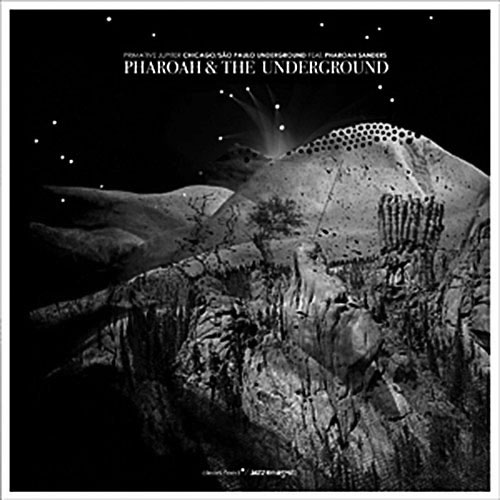
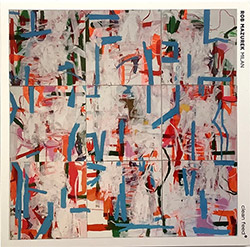
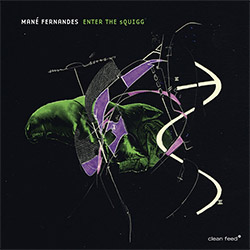
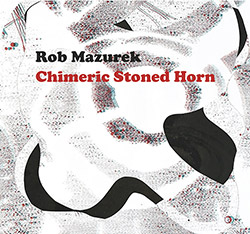
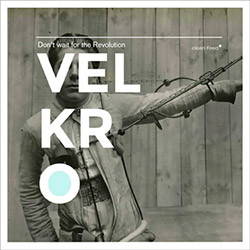


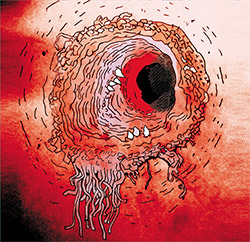
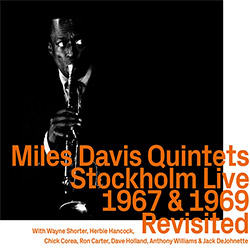

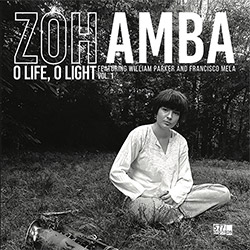
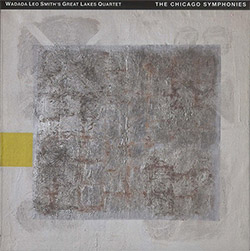




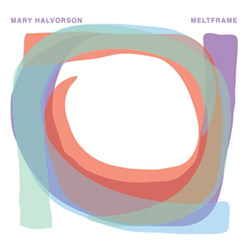


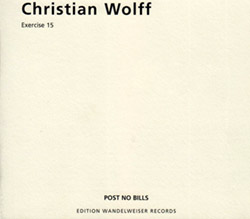

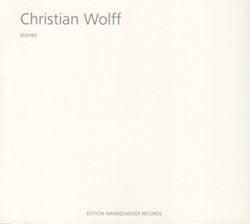
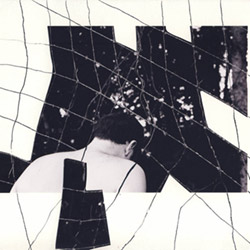
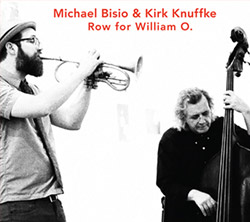

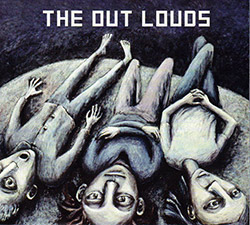
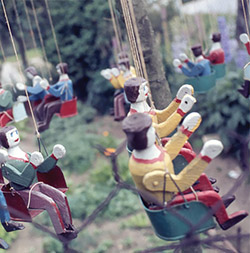






![+DOG+: The Light Of Our Lives [2 CDs]](https://www.teuthida.com/productImages/misc4/36009.jpg)


![Parker, Evan / Jean-Marc Foussat: Insolence [VINYL]](https://www.teuthida.com/productImages/misc4/36398.jpg)










![Deupree, Jerome / Sylvie Courvoisier / Lester St. Louis / Joe Morris: Canyon [2 CDs]](https://www.teuthida.com/productImages/misc4/36404.jpg)


![Eternities: Rides Again [CASSETTE]](https://www.teuthida.com/productImages/misc4/36247.jpg)

![Lopez, Francisco: Untitled (2021-2022) [2 CDs]](https://www.teuthida.com/productImages/misc4/36438.jpg)




![Eventless Plot | Haarvol: The Subliminal Paths [CASSETTE + DOWNLOAD]](https://www.teuthida.com/productImages/misc4/36232.jpg)







![Eventless Plot | Francesco Covarino: Methexis [CASSETTE + DOWNLOAD]](https://www.teuthida.com/productImages/misc4/36231.jpg)



![Das B (Mazen Kerbaj / Mike Majkowski / Magda Mayas / Tony Buck): Love [VINYL]](https://www.teuthida.com/productImages/misc4/36329.jpg)



![Hemphill Stringtet, The: Plays the Music of Julius Hemphill [VINYL]](https://www.teuthida.com/productImages/misc4/36409.jpg)









![Money : Money 2 [2 CDs]](https://www.teuthida.com/productImages/misc4/35894.jpg)




![Klinga, Erik: Elusive Shimmer [VINYL]](https://www.teuthida.com/productImages/misc4/36258.jpg)
![CHANGES TO blind (Phil Zampino): Volume 9 - I Wave on a Fine Vile Mist [CD + DOWNLOAD]](https://www.teuthida.com/productImages/misc4/36061.jpg)

![Wallmart / Rubbish: Asset Protection [split CD]](https://www.teuthida.com/productImages/misc4/35900.jpg)


![+Dog+: The Family Music Book Vol. 5 [2 CDs]](https://www.teuthida.com/productImages/misc4/35897.jpg)
![Kuvveti, Deli : Kuslar Soyledi [CASSETTE w/ DOWNLOAD]](https://www.teuthida.com/productImages/misc4/36107.jpg)

![Nakayama, Tetsuya: Edo Wan [CASSETTE w/ DOWNLOAD]](https://www.teuthida.com/productImages/misc4/36105.jpg)

![Brown, Dan / Dan Reynolds: Live At The Grange Hall [unauthorized][CASSETTE]](https://www.teuthida.com/productImages/misc4/36245.jpg)








![Palestine, Charlemagne / Seppe Gebruers: Beyondddddd The Notessssss [VINYL]](https://www.teuthida.com/productImages/misc4/36206.jpg)
![Palestine, Charlemagne / Seppe Gebruers: Beyondddddd The Notessssss [NEON GREEN VINYL]](https://www.teuthida.com/productImages/misc4/36207.jpg)

![Laubrock, Ingrid: Purposing The Air [2 CDs]](https://www.teuthida.com/productImages/misc4/35639.jpg)

![Yoko, Ono / The Great Learning Orchestra: Selected Recordings From Grapefruit [2 CDs]](https://www.teuthida.com/productImages/misc4/35841.jpg)









![Zorn, John / JACK Quartet: The Complete String Quartets [2 CDs]](https://www.teuthida.com/productImages/misc4/35609.jpg)

![Lonsdale, Eden: Dawnings [2 CDs]](https://www.teuthida.com/productImages/misc4/35480.jpg)



![Sorry For Laughing (G. Whitlow / M. Bates / Dave-Id / E. Ka-Spel): Rain Flowers [2 CDS]](https://www.teuthida.com/productImages/misc4/35985.jpg)

![Rolando, Tommaso / Andy Moor : Biscotti [CASSETTE w/ DOWNLOADS]](https://www.teuthida.com/productImages/misc4/36106.jpg)


![Electric Bird Noise / Derek Roddy: 8-10-22 [CD EP]](https://www.teuthida.com/productImages/misc4/35970.jpg)








![Elephant9 : Mythical River [VINYL]](https://www.teuthida.com/productImages/misc4/34624.jpg)



![Elephant9 with Terje Rypdal: Catching Fire [VINYL 2 LPs]](https://www.teuthida.com/productImages/misc4/35355.jpg)
![Deerlady (Obomsawin, Mali / Magdalena Abrego): Greatest Hits [VINYL]](https://www.teuthida.com/productImages/misc4/34876.jpg)







![Surplus 1980: Illusion of Consistency [CD]](https://www.teuthida.com/productImages/misc4/35069.jpg)
![Staiano, Moe: Away Towards the Light [VINYL + DOWNLOAD]](https://www.teuthida.com/productImages/misc4/35037.jpg)
![Coley, Byron: Dating Tips for Touring Bands [VINYL]](https://www.teuthida.com/productImages/misc4/17906.jpg)

![Lost Kisses: My Life is Sad & Funny [DVD]](https://www.teuthida.com/productImages/misc4/lostKissesDVD.jpg)